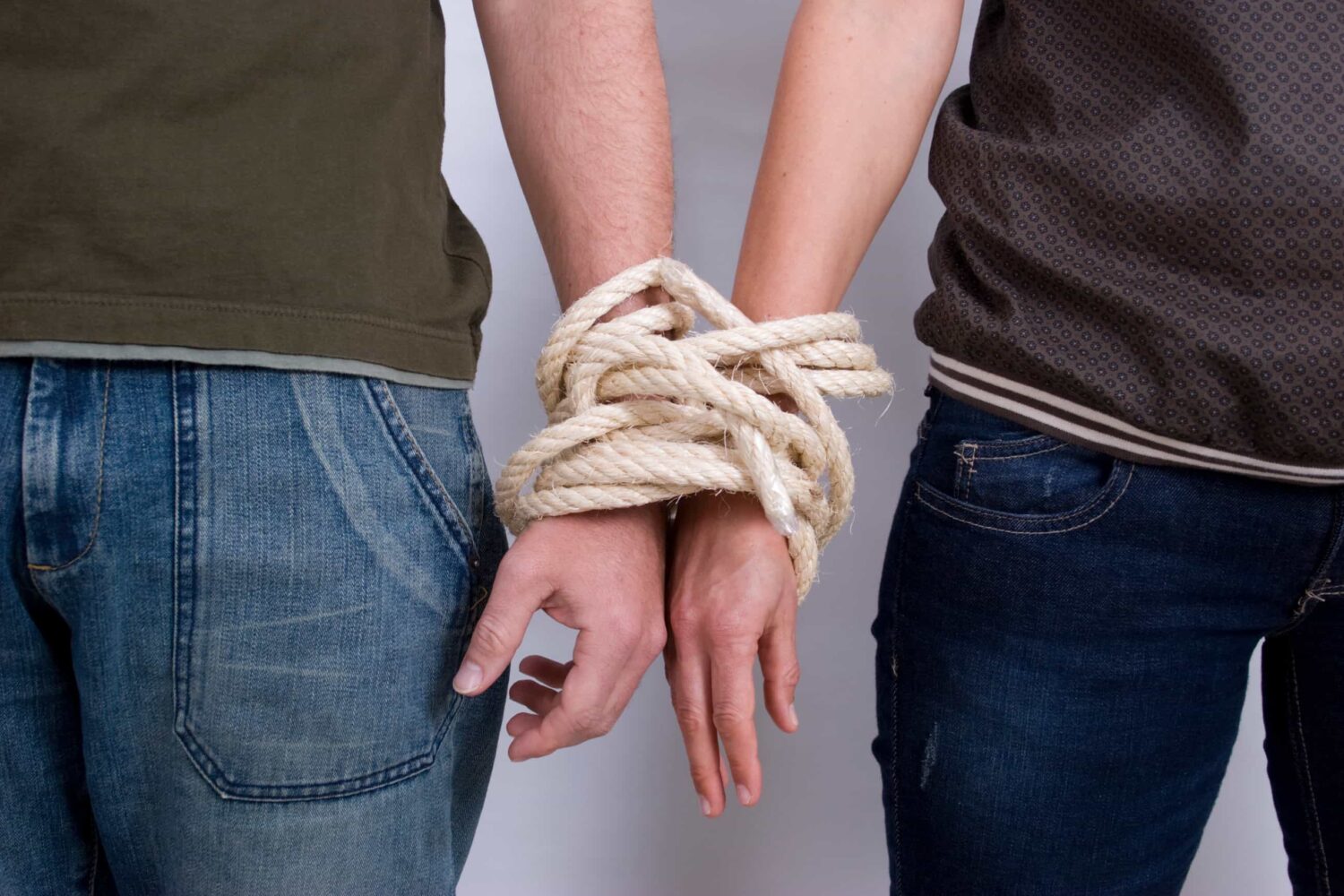Do you feel that you rely on your partner for, well, just about everything? While the person we are romantically involved with should be a person we accept support and validation from, if they are the only one in your life that you turn to for your emotional, spiritual, social and even physical wellbeing, you might be in a codependent relationship.
If you find yourself working extra hard to be the perfect partner, or make extreme sacrifices, feel the need to control and monitor your partner, and smother them with love and affection to calm your own fears, it’s likely you suffer from codependency.
What Does Codependency Look Like?
Also known as relationship anxiety or addiction, codependency describes an unhealthy relationship in which someone relies on their partner to have all their needs met. It is not exclusive to romantic relationships. Even friends, family members, and co-workers can have a codependent relationship.
Codependency is a maladaptive behavior or coping mechanism with harmful effects often learned through familial generations. Family members learn and imitate each other both consciously and subconsciously.
The term originally described a relationship where a person enters a one-sided relationship with someone with a psychological condition such as substance abuse disorder. The 'mentally stable' partner or codependent becomes an enabler by coddling or over helping the addict.
A codependent individual may focus on others to find relief from their own issues or insufficiencies; however, this creates a rebound effect, as suppressing their problems ultimately causes more harm.
Signs You are in a Codependent Relationship
Codependency is not just an attribute of relationships involving addiction. It is also present in what appears to be otherwise healthy relationships. Furthermore, one or both parties can be codependent. The codependent person often…
- Feels worthless unless their friend, parent, colleague, or partner needs them.
- Gets satisfaction from getting other people's needs met. However, they will not attend to their own problems.
- Making grand gestures and drastic sacrifices for a non reciprocating but needy person.
- Finds their identity, interests, or values from the codependent relationship.
- Considers their feelings and desires unimportant or secondary to their needy or demanding partner. The person may have trouble expressing their emotions.
- Neglects their career, responsibilities, and other relationships to focus on the unhealthy relationship.
- Constantly tries to fix or control others.
- Bases the relationship on their fears - they are afraid of rejection, abandonment, and loneliness.
- Inability to set healthy personal boundaries.
- Downplays their partner's vices - saying their addiction is a momentary time of pleasure, excusing their absence, apologizing and taking responsibility for their faults, and people-pleasing.
- Breaking the Cycle of Codependency
Spotting signs of codependency in a relationship is not easy. The people involved are often so engrossed in their roles that it becomes difficult to notice the unhealthy patterns. Keep reading to find out how you can begin to address potential codependence in your relationship.
Understand The Root of the Codependency
Find out the source of this extreme urge to prioritize a relationship at the expense of your mental health. Is it fear, social status, or insecurities like finding rewards in feeling needed?
Understand how these problems cause you to become codependent on others to feed your worries and self-doubt.
Learning how and why you became an enabler to your loved one in the first place can help you to break the pattern. Furthermore, remind yourself that you may worsen your partner’s condition by overlooking behavior, cushioning the repercussions of their actions, and taking the blame on their behalf.
Have a Life Outside of Your Relationship
Take a break from your fixation on your unhealthy relationship. Learn a hobby, make friends beside your partner, and expand your social circle. Let your loved one find support from other entities if your loved one is an addict.
A support group or family can help you two through the stormy weather. Avoid becoming their only pillar of support.
Try Therapy
Psychotherapy is crucial for behavioral modification. Codependency is a learned behavior that begins in childhood. In therapy, you learn the foundation of the error. It also equips you with techniques and skills to undo the learned behavior.
Your therapist becomes your support and accountability partner during the behavioral modification process. These changes enable you to form and maintain healthy relationship boundaries and avoid codependency.
Final Thoughts
Understanding and working through your codependency issues can help you feel more comfortable with yourself and with others. Even if you’ve struggled in the past, that doesn’t mean you need to continue feeling this way moving forward.
Therapy can help. We can untangle some of the fears or obstacles maintaining your codependency issues, and we can develop healthy strategies for coping with these variables. We are here to help you get started.
